Description
The Gambler, subtitled “From the Notes of a Young Man,” is the work of the great Russian writer Fyodor Dostoevsky.
Dostoevsky wrote the novel under certain circumstances, and critics consider it a kind of autobiography.
Usually when we hear Dostoevsky’s name, we think of masterpieces such as Crime and Punishment, Fools, Demons, and the Karamazov Brothers. But the gambler’s book is a masterpiece in its own right.
The story of this novel is told by a young teacher named Alexei Ivanovich, and the gambler’s book is in fact his notes.
He is a home teacher for the children of a Russian general. A general who squandered his fortune and now stays in a hotel in a European city. The city is also known as Rouletteburg. Roulette means wheel of fortune and is a symbol for gambling and casino.
As has been said, the general has lost his fortune and now owes a considerable sum to a Frenchman, and his only hope of paying the debt is the inheritance he will receive if his grandmother dies. The general is under strange pressure, and a French man – Marquis de Grieve – is holding him in his grip. Meanwhile, Marquis de Grieve seems to be secretly having an affair with the general’s daughter – Paulina Alexandrona.
Along with this story, there are other adventures and characters. The young general’s teacher, who is a simple, optimistic, yet eloquent young man, loves the general’s daughter, Paulina. To the extent that he is willing to do anything for her, he is even willing to commit suicide. Polina is exactly what is preventing Alexei Ivanovich from separating from the general’s family.
On the other side of the story, the general, for all his incompetence, falls in love with Blanche. Someone who loves money and thinks that with the death of his grandmother, the general will become very rich and therefore completely attached to him.
But in gambling, nothing goes as expected. Grandmother suddenly comes from Russia and strangely falls in love with gambling and…
Writing about gambling is hard. All the parts of the book, all the characters and all the events are such that the reader is completely immersed in thought. He constantly seeks to understand the author’s purpose. Why did this character specifically do this? Why was this dialogue said here? What was the purpose of that work? And many other questions that will not be answered except by re-reading the sentences and paragraphs three times.
What is clear in gambling is that the behavior of any of the characters, just like the fortune teller, is unpredictable. When gambling, you may win many times by choosing red, you may make good money five times in a row, but for the sixth time, nothing is clear. In the book, you may guess a few specific behaviors of the characters, but understanding their subsequent reaction is unimaginable.
Perhaps this is the main message of the gambler. That people’s behavior and choices are just like gambling. That life as a whole is like gambling and you never know what awaits you. We choose between different options because we feel it is right and it leads to success, but at the same time we see that life has chosen something else for us.
We try our luck elsewhere because we think that’s the right thing to do, and it becomes clear that we are right, and we feel that life has shown us happiness.
Another important topic in the book is the discussion of how people treat money and who has money. This is beautifully illustrated in the book, and Dostoevsky, with the culmination of some of the characters, described the behavior of those around them.
And then, by despising the same character, he showed other people to the reader. It is not unreasonable that Dostoevsky’s books have been called the best books on the psychology and analysis of human behavior.
“The Gambler” is one of Dostoevsky’s most fascinating yet distinguished works of Russian literature. Dostoevsky wrote this novel under special circumstances at the age of 45 and in a short period of time (about 26 days); But his endless and artistic creativity in this short time has led to the creation of a lasting work.
The narrator of the gambler’s novel is Alexei Ivanovich, a young home school teacher for the children of a general he lives with. Whenever the general travels abroad, he stays in a city called Rouletteborg.
Sentences from the text of the gambler novel
Finally, you can gamble with an empty pocket. One must have money to lose.
At first, everything seemed very dirty to me, morally filthy and black. I do not mean the tens and hundreds of restless money seekers who gather around the roulette table. I do not see anything impure in people’s desire to get money as soon as possible.
I consider the words of the claimant to be nonsense, who teaches morality with a full stomach, and in response to someone who apologizes in justifying his game by saying, “I will not play big,” he says: “Worse! “Because it is a sign of greed.” There seems to be a difference between low greed and high greed.
The amount of money should be so small for a gentleman that his absence can not disturb his peace.
He is about twenty-five years old. Tall, with beautiful shoulders and charming neck and chest. The color of her skin is wheatish. Her hair and hair are like black bitumen and so thick that it was enough to decorate two people. The eggs of his eyes are black and their whites are yellow. His gaze is impudent and his teeth shine like pearls. Her lips are always red and the tension always smells of musk.
Her clothes are impressive and luxurious and measured and very tasteful. His legs and arms are astonishingly delicate, but his voice is thick and uneven.
First, I put twenty gold coins on the pair and won. I repeated the same game and took it back. I repeated this two or three times. I think I won four hundred gold coins in five minutes.
It was better to quit the game right away and leave the casino. But a strange feeling was found in my heart. It was as if I wanted to bring destiny to the arena, to put it on its head. Flip it or tap it.
What do I want money for; How for what? Money is everything.
The bird is known by its flight, the man by his deeds!
If you are afraid of wolves, do not go to the forest!
One who walks on this path is left to slip on a snow-covered slope of a mountain. It is constantly increasing in speed.
Sometimes a strange thought, an imaginary fantasy, and seemingly hard away from reality, becomes so strong in one’s mind that one thinks it is reasonable and practical, it is easy, if it is accompanied by intense desire and longing, it may become inevitable and Respect and appreciate, something that may not really be possible. Maybe the work goes even further.
What am I now? None! Zero! What will I be tomorrow? Tomorrow I may rise from the dead again and start a new life. And to discover “man”, not yet completely destroyed in me.
It feels very strange when a person is alone in a foreign country, far from his homeland and business, and does not know what he will eat that day, and wants to risk his last gold, his last. But I took the risk and won, and twenty minutes later I came out of the casino with one hundred and seventy golds in my pocket. this is a fact. Sometimes what does the last Golden do! What would have happened if I had accepted my defeat, if I had not dared to decide?
The gambler novel is about gambling. They are more greedy for people who win no matter how much they win and they do not regret what they lose. About people who spend their whole lives on luck.
The main character of the gambler’s novel is Alexei Ivanovich. Alexi is a homemaker who enters aristocratic families. The family loses their wealth and lives only in the hope of an inheritance to be inherited after the death of the general’s aunt. Alexis unknowingly falls in love with Polina, the general’s sister. But Paulina treats him ruthlessly and indifferently. However, when Alexi needs money, Paulina gives him money to gamble. For the first time, luck is with him. Lust leads him to gamble again and again to the point that he loses all his money.
At the same time, her aunt comes, who is all waiting for her death. Aunt who seems to have just got acquainted with the charm of gambling puts all her wealth in gambling. It seems that everyone sees their destiny in gambling. Even Alex, who is willing to give his life for Paulina, the only way he sees to reach her is gambling.
Fyodor Dostoevsky, as always, is so good at analyzing characters that in the end we feel we see and understand them.
About Fyodor Dostoevsky:
Dostoevsky; From the execution squad to journalism
Born in November 1821, Fyodor Dostoevsky is one of the most influential and important writers in Russian history. He lost his mother as a teenager, but was able to pass the entrance exams for the School of Military Engineering in St. Petersburg in 1838.
He graduated five years later with the rank of officer and worked in the engineering department of the Ministry of War. When his father’s share of the inheritance ran out, Fyodor turned to translating Balzac’s Eugene Grande. He left his job at the Ministry of War and joined the protesting writers in St. Petersburg, writing the novel “The Poor”, which was also translated into Persian as “The Poor” and “The Poor People”.
In the next two years, his other novels “Hamzad”, “Mr. Prokharchin” and “The Housewife” were published. Spy infiltrated their intellectual circles at the time, and Fyodor was imprisoned in April 1849 for overthrowing the government. The death sentence handed down to him was commuted to four years in prison in Siberia for military service.
To show its grandeur, the Tsarist government staged a dramatic execution in December of that year to intimidate the prisoners, during which a number of prisoners, including Dostoevsky, were placed in front of fire brigades. Dostoevsky believed that the play was one of the most influential moments of his life.
Dostoevsky fell in love with Maria Dimitriona while serving in the army and went to live with her in Moscow in the spring of 1859. After moving to Moscow, he joined his brother Vermia as a journalist. Two years later he lost his brother and his wife Maria. At age 45, he wrote Crime and Rewards and Gambling. The following year he married his short story writer Anna Grigoriona and traveled with her to Europe, where he began gambling and had many problems.
In those years he wrote other works such as “Always Husband”, “The Dead”, “Raw Young” and “The Karamazov Brothers”. The Karamazov Brothers are the masterpiece of this author and it is said that the will of Fyodor Dostoevsky belongs to the Russian nation. The Karamazov brothers have been praised by such greats as Albert Einstein, Sigmund Freud, Martin Heidegger, Ludwig Wittgenstein, and Pope Benedict XVI. He died of pulmonary hemorrhage in February 1881 and was buried in Tikhvin Cemetery in St. Petersburg, Russia.
Dostoevsky, Dostoevsky or Dostoevsky ?!
Many readers may be wondering which of the pronunciations of the author’s name is correct in Persian? Fyodor or Fyodor Mikhailovich Dostoevsky, Fyodor Dostoevsky or Fyodor Dostoevsky ?! “Fyodor Dostoyevsky” is the correct pronunciation of the name of this great writer of Russian and world literature, “Fyodor Dostoevsky, the Iranian translator and researcher of Russian language and literature, told IBNA.
1- Introducing the book on YouTube
2- Introducing the book in Aparat

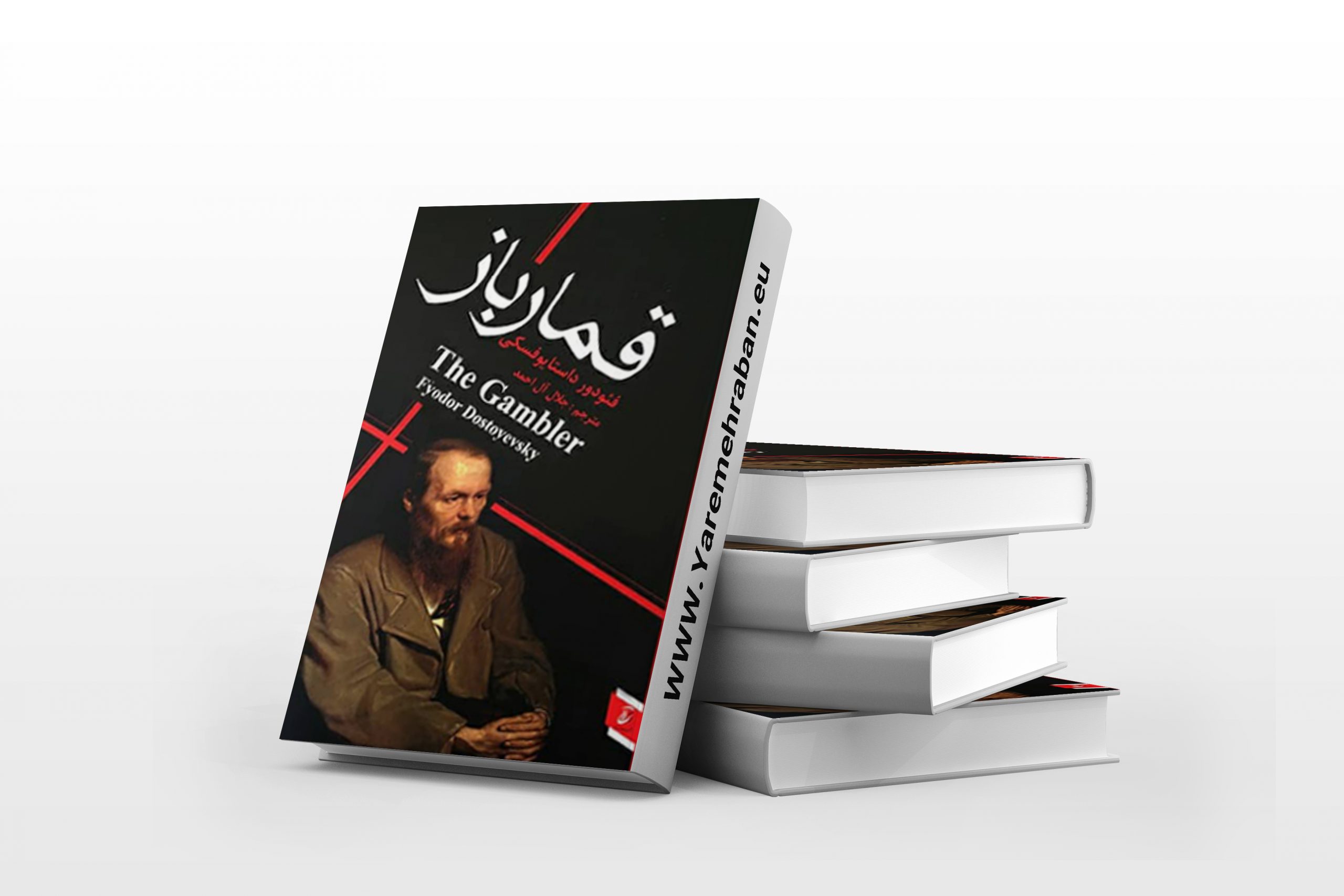
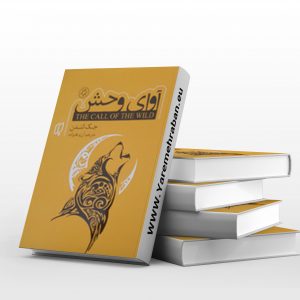




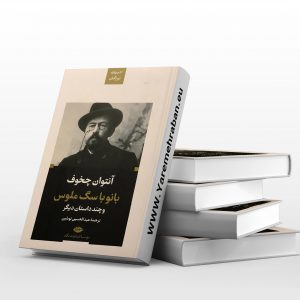
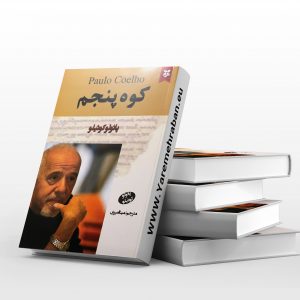


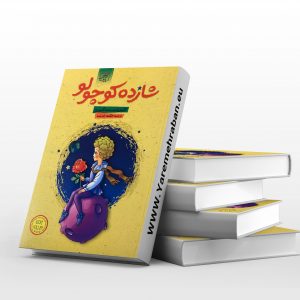
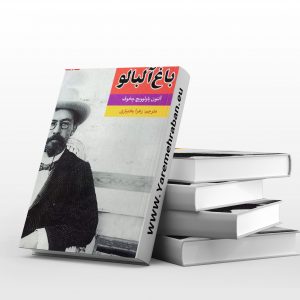

Reviews
There are no reviews yet.